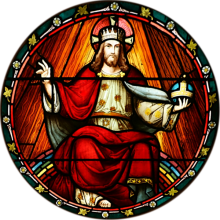Faith and Politics
I would never have been mistaken as a political supporter of President George W. Bush. But in his early days as president, I was invited to have conversations with him and his team about faith-based initiatives aimed at overcoming poverty, shoring up international aid and development for the most vulnerable, and supporting critical agendas such as international adoptions of marginalized children and the broken domestic foster care system.
My invitations to the Bush White House ended when I strongly and publicly opposed the Iraq War. But I continued to support the administration’s efforts to combat poverty and disease, especially Bush’s leadership in combating HIV/AIDs, malaria, and massive hunger in the poorest places in Africa.
That agenda was called “compassionate conservatism” and I was grateful for it. Back then, Republican leaders could be fiscally conservative, favor “small government,” and believe in the free market, for example, but also believe that government should and must partner with the private sector — especially non-profit and faith-based organizations — to help lift people out of poverty, both abroad in the developing world and here at home in the richest nation on the planet. Such a conviction requires two things: A genuine empathy and commitment to the poor, and a more balanced and positive view of government — neither of which were much evident in the GOP’s right-wing quarters, where the compassionate conservative agenda was opposed by party leaders such as Tom DeLay and Dick Armey.
I met people like Mike Gerson, who was then George Bush’s chief speech writer and a policy advisor, and is now a columnist for the Washington Post. I was told it was Gerson and the Bush himself who often were the ones to stand up for the compassionate conservative vision at Oval Office meetings.

Here’s the story I tell about how I met my husband, Matthew.
I had left the conservative, sectarian church of my childhood along with their teaching that being Christian mostly meant buying an insurance policy for the hereafter. We were told not to concern ourselves with this world. We need not bother ourselves with the poor, the hungry, the stranger unless of course in doing so we might sell them the eternal insurance policy thus adding a notch to our holiness belt. See, as our hymns suggested, we were the spiritual 1 percent we were all about gold streets and mansions in heaven so the deteriorating sub-standard housing around the corner was not our concern.
Almost 10 years after leaving that form of Christianity and after involving myself quite deeply into issues of social justice I met Matthew, a really cute Lutheran seminary student. On our first date we sat across the booth from each other at el taco de Mexico and talked about social issues and we saw eye to eye on everything. Then he said, “my heart for the poor is rooted in my Christian faith” at which point I looked at him and thought: What are you? Like a unicorn? Some mythical combination of creatures that doesn’t exist in reality? Soon I learned there was a whole world of Christians out there who actually take Matthew 25 seriously. Who believe that when we feed the hungry, cloth the naked, and care for the sick we do so to Jesus’ own self.
Self-identifying as an Evangelical might get me labeled a political activist. Yes, I’m an Evangelical. I’m also a Republican. But touching these two labels together invokes pictures of voting checklist guides, culture wars, and the case of Visine needed to make Michelle Bachmann eyes blink. I‘m not a militant, taking the country back for God.
So am I an Evangelical? Did you know that the family name is actually Swiss-German? That explains our passive-aggressive nature.
The term "Evangelical" is like a pair of hand-me-down underwear. It's been stretched over so many shapes and sizes that it's lost its snap and doesn't fit anyone anymore. It’s been pulled around the circumference of Mars Hill, Seattle and Mars Hill, Grand Rapids. Billy Graham, Ted Haggard, Jim Bakker, Jay Bakker Benny Hinn, Scot McKnight, Don Miller, Jimmy Carter, W., John Piper, Ken Ham, Jim Wallis, and Bill Hybels have all had their turn sporting this hand-me-down garment.
Ask me if I’m an Evangelical and I’ll ask if you know where that label’s been. It’s rubbed against far too much junk for my taste.
Words lose their currency with overuse, it’s true. But it’s also true that a large part of my issue with being labeled an Evangelical is vanity.
HIV/AIDS is a justice issue. The most vulnerable and poorest people still don’t have access to the treatments that save lives. Jesus’ concern for the lives of the sick in Matthew 25 calls Christ-followers to do everything in our power to make these life-saving treatments available to every person in need.
“America is a great idea,” Bono said.
Fundamental to that idea is the belief that all people are created equal and endowed by their creator with the intrinsic right to life, liberty and the pursuit of happiness.
The right to life, the right to liberty, and the right to pursue happiness each demand the will and resources make an AIDS-free generation a reality by 2015.
Jim Henson spent his life, like Mr. Rogers (a Presbyterian minister), trying to say to us and our children, "Hey, you're special and you're good." How is this a bad thing?

I first heard the term "evangelical" in the 1980s, about the time the Swaggarts and Bakkers were imploding. Christianity needed a new name for sane, intellectually sound faith.
"Born-again" had been sullied by the televangelists and worn out by Debbie Boone’s explanation of how she justified singing the lyrics to “You Light Up My Life.”
"Jesus Freak" had died with the Peace movement.
We needed another word to separate true Christians from fake ones; sheep from goats; serious believers from those who merely checked the “Christian” box on their driver’s license application because Jew, Muslim or Ekkankar didn’t apply.
(Sometimes I wonder if all the denominations in Christendom are merely a list of the nomenclature we’ve used to separate Us from Them.)
But to say that kids in poor neighborhoods have “no habits of working” and have “nobody around them who works” is false and trivializes all of the hardships that poor people in this country face.
Three-quarters of those who live under the poverty line have jobs. Many more are looking for work.
I don’t doubt that you can find people out there who are poor because they don’t have a strong work ethic, but all you need to do is turn on E! or browse TMZ for a few minutes to find lazy rich people who take no responsibility for their actions.
Last night we watched the First Family light the National Christmas Tree.
We expected what we get every year: a broad message about generosity and the season of giving. But what we got was so much more.
President Obama’s remarks were encouraging. They were about the Christmas that Christians celebrate as a week of Advent, not just Christmas as a generic feeling or a season. Several news outlets, including CBN, CNN, and The Christian Post covered the story in a tone of support, somewhat surprised at the president speaking from a place of deep personal faith. His remarks were so wholly about the Christ in Christmas that it could have been delivered by a local reverend.
This analysis is not from Occupy Wall Street: It’s from those long-haired, hippie radicals over at Bloomberg News, whose Freedom of Information Act lawsuit finally pried the bailout details out of the unwilling Fed. Turns out the banks made $13 billion in profits off the government’s sweetheart-deal interest rates, which New Deal 2.0 is calling maybe “the biggest subprime loan operation of all time.”
The contrast couldn’t be clearer: While the government swung into extreme, double-secret action to save Wall Street, it’s sitting on its hands as long-term mass unemployment hammers Main Street.
Unfortunately, many people who go to church on Sunday are more influenced by what they see on cable TV than by the Bible. I hear that lament from pastors all the time. Too many of their congregant’s political priorities are determined by a party or ideology – not the Word of God. Their identities are shaped by marketing and media campaigns that manufacture a view of the world in order to maximize their own power and profit.
The antidote is simple. Christians need to read their Bibles more. It makes a difference.

Today is the Feast of Christ the King, the last Sunday in our church year.
I always find it a strange feast to celebrate in a democracy, in which the whole point is that we do not have kings, but shared authority vested in the people and temporarily delegated to elected leaders. What does thinking about Jesus as a King mean to folk like us?
This year it is particularly strange, for, with the exception of the marriage of William and Kate, this has been a bad year for kings. Monarchs, tyrants, plutocrats, and autocrats of every stripe have found themselves under assault from a powerful wave of populism, as the citizens of country after country have risen up to hold their leaders accountable for their stewardship of their nations. Throughout the Middle East and in parts of Europe and the United States, the official narrative of power has been held up and judged against another set of ideas, one that speaks of fairness, liberty, and raising up the poor. Ruler after ruler has heard a cry that translates, roughly: “as you did it to the least of us, so shall it be done to you.”
Christ is a different kind of king, and his authority always calls our leaders to account, whatever the form of our government or our political preferences. Christ embodies a form of leadership that is rarely seen in our world. In the ordinary scope of things, our leaders wear nice suits and inhabit the corridors of power and cut deals with the wealthy and the powerful. Christ, however, threw in his lot entirely with those whom the doors of power shut out. He would talk with anyone, eat with everyone, and, in the end, died among the refuse of his people. He was a leader who led from below.

Another week, another Republican Presidential Debate.
This time, eight of the GOP candidates for the nomination spent their evening putting forward their beliefs on the issues of foreign policy and national security. The topics ‘debated’ (out of respect for Debate teams around the country, I use inverted commas) were not surprising – Afghanistan, Iran, the Arab Spring, Israel, foreign aid, immigration.
But there were a few things that the candidates did say that caught my attention as I read through the transcript this morning – particularly in relation to foreign aid and immigration.
It was encouraging to hear at least one candidate come out and support the positive impact and geo-strategic importance that non-military development assistance is playing on the African continent (even if he did accidentally call Africa a "country.")

Older, Suburban And Struggling, ‘Near Poor’ Startle The Census. OWS Campers: What Can We Occupy Next. Social Conservatives Hold Covert Meeting To Stop Romney. In Season Of Giving Thanks, Signs That Gratitude Is Back. What Christians Want In A President. Could Gingrich’s Immigration Stance Boost His 2012 Chances? And States’ Immigration Laws Fill Leadership Void Left by President and Congress.

In 'God's Country': Voting Wallets Over Religion. Why Evangelicals Forgive (Republican) Sex Scandals. The Gospel According To Herman Cain. Pope Asks African Catholics To Be ‘Apostles Of Reconciliation.’ Super Screwed. Congress May Try Blocking Cuts If Debt Panel Fails. Too Much Violence And Pepper Spray At The OWS Protests: The Videos And Pictures.

A new poll out from the Public Religion Research Institute and Religion News Service shows that just about the same number of American’s feel that Occupy Wall Street shares their values as does the Tea Party.
The split comes down partisan lines but is also generational. Eighteen-to-thirty-nine year olds are much more likely to feel that Occupy Wall Street shares their values then does the Tea Party.
What will be of great interest to watch over the coming months is the overlap between concerns of both movements. For example, neither group is a fan of the bank bailout and express an overwhelming feeling that elected officials aren’t responsive or accountable to those who elected them. I’m not arguing they will join forces any time soon, but they still could find a few areas of agreement.
What convinced me that common ground might be possible was another unlikely event, I read a column by Sarah Palin that I liked.

Over the weekend, our friend Paul Brandeis Raushenbush, senior religion editor for the Huffington Post, was a guest on NPR's "On Being" program with host Krista Tippett, to talk about how the Social Gospel movement of the early 20th century is shaping the religious and spiritual reality of 2011.
An ordained American Baptist minister and a former dean of religious life and the chapel at Princeton University, Raushenbush is the great-grandson of both the venerable Christian scholar Walter Rauschenbush and U.S. Supreme Court Justice Louis Brandeis. He talked to Tippett about the influence of faith on the Occupy movement, religion and emerging technologies and what his great-grandfather Rauschenbush's take on the social gospel — he famously said, "Social problems are moral problems on a larger scale" — has to say to the life of the church and society writ large today.
It's a compelling conversation, well worth your taking the time to listen.

Obama At Church: The Tricky, Exciting, Distracting Business Of Worshipping With A President. OpEd: Should A President Be Intelligent? Archbishop Rowan Williams Backs Revolt Against Coalition's Welfare Cuts. Taking It To The Streets. Are Christians To Blame For White House Shooter Linking Obama, Antichrist? Voices Of The Near Poor. What Occupy Harvard Should Tell Liberal Elite Parents On Thanksgiving. Democrats To Protest Immigration Crackdowns. And Hispanic Churches Fight Alabama Crackdown On Immigration.
Yesterday, Congress passed the 2012 Agricultural Appropriations Bill or “minibus” as it has come to be called. The good news is that cuts to both national and international nutrition programs were not as severe as originally expected. The bad news is, poverty is still at record levels and there is still more we can do to help those in need.
Over the past few weeks, Sojourners activists have sent thousands of emails to Congress urging them not to cut poverty focused foreign aid. While that fight continues, the passage of this bill -- without any major cuts to vital programs for poor and hungry people -- is an important step.
As Injured Vets Return Home, Churches Reach Out. Occupy Wall Street Gears Up For The Big Day. Faith Overtones In Occupy Protests But Leaders Wary. OpEd: How The First Amendment Got Hijacked. Religious Groups Offer Help To Evicted Protesters. OpEd: What Happens When A Seminary Is Occupied? Religious Voices Loud And Clear At Keystone XL Protests. Iowa Scientists Ask Candidates To Acknowledge Climate Change. And Below The Line: Portraits Of American Poverty.